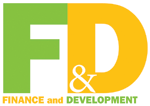Big Bad Bonuses?: Bonuses and the “Doom Cycle”
Finance & Development, March 2010, Volume 47, Number 1
BANKERS’ bonuses are a high-profile symptom of a much larger and deeper problem—the ability and willingness of the largest players in our financial system to take reckless risks.
We have let a “doomsday cycle” take over our economic system. (Andrew Haldane, of the Bank of England, has identified a similar “doom loop.”) This cycle has several distinct stages. At the start, creditors and depositors provide banks with cheap funding. If things go very wrong, they expect central banks and fiscal authorities will bail them out.
Banks such as Citigroup and Goldman Sachs—and many others in this past cycle—used the funds to take large risks, providing dividends to shareholders and bonuses to management and staff. Through direct subsidies (such as deposit insurance) and indirect support (such as the prospect of central bank bailouts), we encourage our banking system to ignore large, socially harmful “tail risks”—risks that involve a small chance of calamitous collapse. Banks can walk away and let the state clean up. Some bankers and policymakers even do well during the collapse they helped to create.
Mind-boggling failure
Regulators and supervisors are supposed to prevent this dangerous risk taking. But banks wield substantial political and financial power, and the system has become remarkably complex, so eventually regulators become compromised. The extent of regulatory failure ahead of the current crisis is mind-boggling. Prominent banks, including Northern Rock in the United Kingdom, Lehman Brothers in the United States, and Deutsche Bank in Germany, convinced regulators that they could hold small amounts of capital against large and risky asset portfolios. The whole banking system built up many trillions of dollars in exposures to derivatives. This meant that when one large bank or quasi bank failed, it was able to bring down the whole system.
Given the inability of our political and social systems to handle the hardship that would follow economic collapse, we rely on our central banks to cut interest rates and direct credits to save the loss makers. While the faces change, each central bank and government operates similarly. This time, it was Federal Reserve Board Chairman Ben Bernanke and Treasury Secretary Tim Geithner (president of the New York Federal Reserve Bank in the run-up to the crisis) who oversaw policy as the bubble was inflating—and are now designing our “rescue.”
When the bailout is done, we start all over again. This has been the pattern in many developed countries since the mid- 1970s—a date that coincides with significant macroeconomic and regulatory change, including the end of the Bretton Woods fixed exchange rate systems, reduced capital controls in rich countries, and the beginning of 20 years of regulatory easing.
The real danger is that as this cycle continues, the scale of the problem is getting bigger. If each cycle requires greater and greater public intervention, we will surely eventually collapse.
The best route to creating a safer system includes very large and robust capital requirements, which are legislated and difficult to circumvent or revise. If we triple core capital at major banks to 15 to 25 percent of assets—putting capital-asset ratios back where they were in the United States before the formation of the Federal Reserve in 1913—and err on the side of requiring too much capital for derivatives and other complicated financial structures, we will create a much safer system with less scope for gaming the rules.
Less likely to gamble
Once shareholders have a serious amount of funds at risk, relative to the winnings they would make from gambling, they will be less likely to gamble and are more likely to keep dangerous compensation schemes under control. This will make the job of regulators far easier and give our current regulatory system a chance to work.
We also need to ensure that individuals who are part of any failed system expect large losses when their gambles fail and public money is required to bail out the system. Even though many executives at bailed-out institutions lost large amounts of money, they remain very wealthy.
Other bankers obviously won big from the crisis. U.K. Chancellor Alistair Darling appointed Win Bischoff, a top executive at Citigroup in the run-up to its spectacular failure, to be chairman of Lloyds. Vikram Pandit sold his hedge fund to Citigroup, which then wrote off most of the cost as a loss; nevertheless, Pandit was soon named Citigroup CEO. Jamie Dimon and Lloyd Blankfein, CEOs at JPMorgan Chase & Co. and Goldman Sachs, respectively, are outright winners, even though each of their banks also received federal bailouts and they agreed to limit their bonuses for 2009. Goldman Sachs was lucky to gain access to the Fed’s “discount window,” so averting potential collapse.
We must stop sending the message to our bankers that they can win big on the rise and also survive (or do well financially) on the downside. This requires legislation that recoups past earnings and bonuses from employees of banks that require bailouts.
References
International Monetary Fund (IMF), 2009, Regional Economic Outlook: Western Hemisphere (Washington, May).-
Kamil, Herman, and Kulwant Rai, 2010, “The Effect of the Global Credit Crunch on Foreign Banks’ Lending to Emerging Markets: Why Did Latin America Fare Better?” (unpublished; Washington: International Monetary Fund).
Simon Johnson is a professor at the Massachusetts Institute of Technology’s Sloan School of Management, a senior fellow at the Peterson Institute for International Economics, and a member of the Congressional Budget Office’s Panel of Economic Advisers. Johnson, a former chief economist at the IMF, is coauthor, with James Kwak, of the forthcoming book 13 Bankers.


